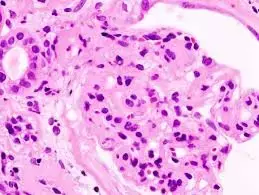- Home
- Medical news & Guidelines
- Anesthesiology
- Cardiology and CTVS
- Critical Care
- Dentistry
- Dermatology
- Diabetes and Endocrinology
- ENT
- Gastroenterology
- Medicine
- Nephrology
- Neurology
- Obstretics-Gynaecology
- Oncology
- Ophthalmology
- Orthopaedics
- Pediatrics-Neonatology
- Psychiatry
- Pulmonology
- Radiology
- Surgery
- Urology
- Laboratory Medicine
- Diet
- Nursing
- Paramedical
- Physiotherapy
- Health news
- Fact Check
- Bone Health Fact Check
- Brain Health Fact Check
- Cancer Related Fact Check
- Child Care Fact Check
- Dental and oral health fact check
- Diabetes and metabolic health fact check
- Diet and Nutrition Fact Check
- Eye and ENT Care Fact Check
- Fitness fact check
- Gut health fact check
- Heart health fact check
- Kidney health fact check
- Medical education fact check
- Men's health fact check
- Respiratory fact check
- Skin and hair care fact check
- Vaccine and Immunization fact check
- Women's health fact check
- AYUSH
- State News
- Andaman and Nicobar Islands
- Andhra Pradesh
- Arunachal Pradesh
- Assam
- Bihar
- Chandigarh
- Chattisgarh
- Dadra and Nagar Haveli
- Daman and Diu
- Delhi
- Goa
- Gujarat
- Haryana
- Himachal Pradesh
- Jammu & Kashmir
- Jharkhand
- Karnataka
- Kerala
- Ladakh
- Lakshadweep
- Madhya Pradesh
- Maharashtra
- Manipur
- Meghalaya
- Mizoram
- Nagaland
- Odisha
- Puducherry
- Punjab
- Rajasthan
- Sikkim
- Tamil Nadu
- Telangana
- Tripura
- Uttar Pradesh
- Uttrakhand
- West Bengal
- Medical Education
- Industry
High risk nephrotic syndrome patients with relatively high albumin likely to develop thromboembolic events: Study

Thromboembolic events are common complications of nephrotic syndrome.High risk nephrotic syndrome patients with relatively high albumin are likely to develop thromboembolic events suggests a study published in the BMC Nephrology.
Low albumin level is a risk factor for thromboembolic events in patients with NS (nephrotic syndrome). However, little is known about the proportion and characteristics of patients with NS who experience thromboembolic events with relatively high albumin levels (≥ 25 g/L). Therefore, we explored the features of this specific group of patients. This study included all hospitalized patients in our center for the past 10 years who had diagnoses of NS and relevant thromboembolic events. We divided them into 2 groups based on their serum albumin level when the thromboembolic event occurred. The clinical data were analyzed with SPSS software.
Results: There were 312 patients enrolled in our study. Eighty-four (26.9%) of them had relatively high albumin levels (≥ 25 g/L). Patients with NS with high albumin levels had significantly lower levels of 24-h proteinuria (P < 0.01) and a higher rate of autoimmune disease (P = 0.03) than the low-albumin group. Membranous nephropathy (MN) was the most frequent pathological type of NS in patients with thromboembolic events, regardless of their albumin level. There were significantly fewer patients with anti-PLA2R (M-type phospholipase A2 receptor)-positive MN in the high-albumin group than in the low-albumin group (P < 0.01). The study found that there was still a high risk for patients with NS and relatively high albumin levels to develop thromboembolic events.
Reference:
Liu, Ym., Gao, S. & Liu, Lj. The risk of thromboembolic events in patients with nephrotic syndrome and relatively high albumin levels: a study over 10 years. BMC Nephrol 25, 301 (2024). https://doi.org/10.1186/s12882-024-03704-w
Dr. Shravani Dali has completed her BDS from Pravara institute of medical sciences, loni. Following which she extensively worked in the healthcare sector for 2+ years. She has been actively involved in writing blogs in field of health and wellness. Currently she is pursuing her Masters of public health-health administration from Tata institute of social sciences. She can be contacted at editorial@medicaldialogues.in.
Dr Kamal Kant Kohli-MBBS, DTCD- a chest specialist with more than 30 years of practice and a flair for writing clinical articles, Dr Kamal Kant Kohli joined Medical Dialogues as a Chief Editor of Medical News. Besides writing articles, as an editor, he proofreads and verifies all the medical content published on Medical Dialogues including those coming from journals, studies,medical conferences,guidelines etc. Email: drkohli@medicaldialogues.in. Contact no. 011-43720751


